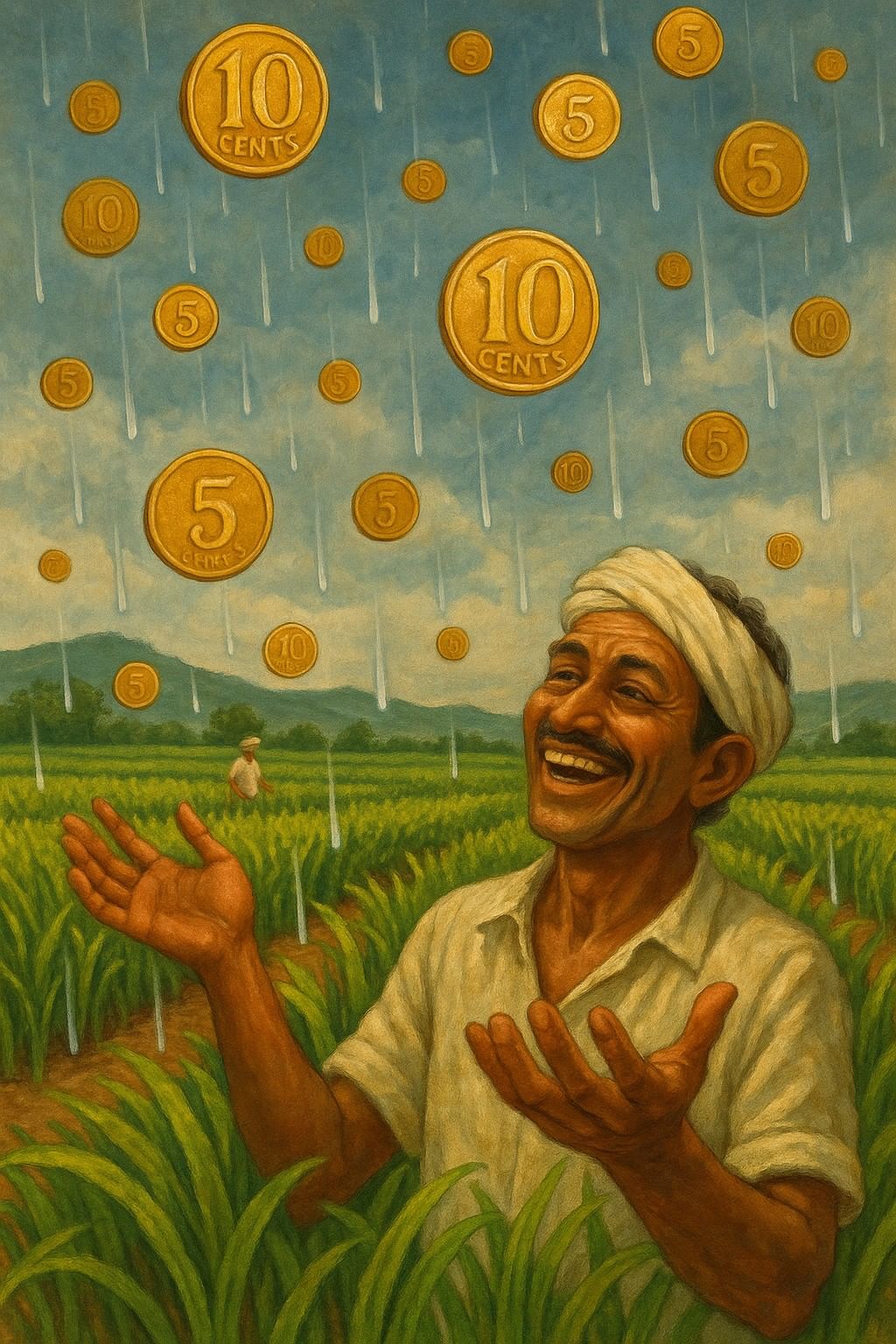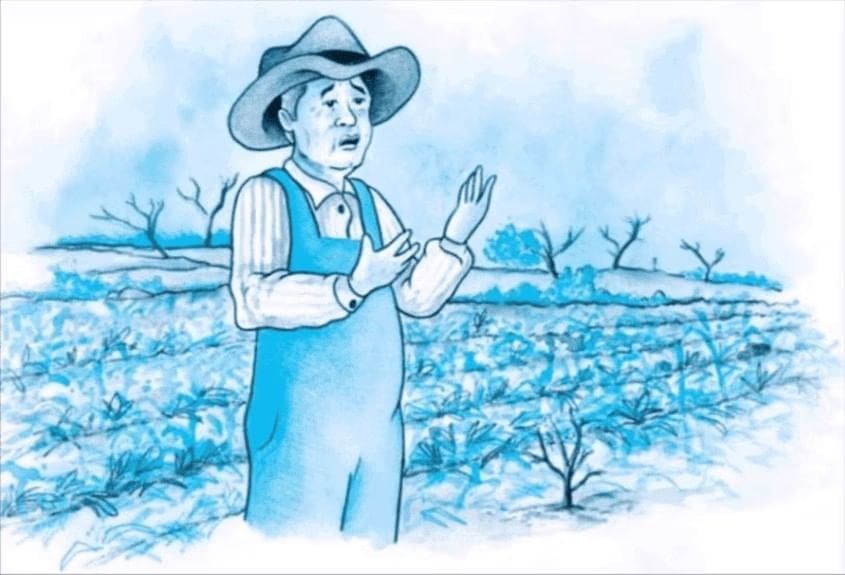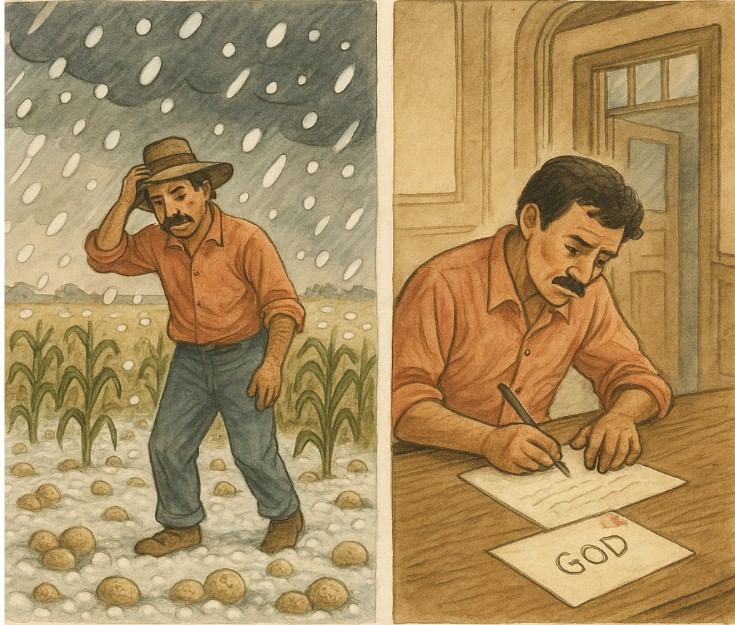Class 10 English Chapter 1 Question Answers - First Flight
Short Answer Questions
Q1. What are the raindrops compared to and why?
Ans: Raindrops are compared to new coins, specifically ten-cent and five-cent pieces. This comparison suggests that they represent a promising harvest, much like receiving good money.

Q2. How was Lencho sure that it was going to rain?
Ans: Lencho was sure it would rain because:
- He knew his fields intimately.
- He could observe the sky and predict the weather.
- His experience allowed him to see the approaching clouds.
Q3. What promised a good harvest?
Ans: Lencho believed that a field of ripe corn adorned with flowers indicated a promising harvest. He was eagerly looking forward to a successful yield
Q4. How did Lencho regard his field? Why?
Ans: Lencho regarded his field with satisfaction when it began to rain. He felt a deep sense of joy as he watched the crops being nourished by the rain, which filled him with hope for a good harvest.

Q5. “It’s really getting bad now.” What was getting bad and how?
Ans: Lencho was initially happy when the rain started, but the weather soon took a turn for the worse:
- A strong wind picked up.
- Large hailstones began to fall, resembling new silver coins.
- Lencho exclaimed, "It's really getting bad now."
The hailstorm lasted for an hour, causing significant damage:
- The entire valley was affected.
- The fields turned white, as if covered with salt.
- All crops were destroyed.
Lencho felt deep sadness, realising they would have no corn this year.
Q6. Why was Lencho’s soul filled with sorrow?
Ans: The hailstorm rained down for an hour, covering the fields with ice and destroying Lencho's crops. This devastation filled his soul with sorrow as he realised that all his hard work had come to nothing. He feared that his family would go hungry this year.
Q7. Why was the family not really upset?
Ans: Lencho's family, despite facing potential ruin, remained largely untroubled. Their strong faith in God provided them with hope and confidence that assistance would arrive. They believed that God would meet their needs, which helped maintain their spirits during this challenging time.

Q8. Why did the postmaster send a reply to Lencho’s first letter addressed to God?
Ans: The postmaster was a kind and generous man who admired Lencho's strong faith in God. To support this faith, he decided to respond to Lencho's letter. His actions included:
- Collecting money from his colleagues.
- Contributing part of his own salary.
- Sending Lencho a little over half of the requested amount.
He enclosed the money in an envelope addressed to Lencho, signing the letter simply as God.
Long Answer Questions
Q1. What was Leneho’s pride and possession?
Ans: Lencho lived in a solitary house on a low hill in the valley. From this height, he could see the river and his pride: a field of ripe corn adorned with flowers, promising a good harvest. His only wish was for rain, which he confidently predicted. During dinner, his prediction came true as rain began to fall. He stepped outside to feel the rain and looked at his crops, now draped in a curtain of rain, with satisfaction. To him, the raindrops were like new silver coins.
Q2. Bring out Lencho’s immense faith in God.
Ans: Lencho's faith in God was evident throughout his life as a farmer. Key moments that illustrate this include:
- After a devastating hailstorm ruined his crops, Lencho felt deep sadness but did not lose hope.
- He wrote a letter to God, asking for 100 pesos to replant his fields, showing his unwavering trust in divine help.
- When he received 70 pesos from the postmaster, he was surprised but also angry, believing God had made a mistake.
- Lencho insisted on writing another letter, demanding the remaining money, as he thought the post office staff were dishonest.
This situation highlights Lencho's profound faith, as he remained convinced that God would provide for him, despite his doubts about human integrity.

Q3. How was Lencho’s crop destroyed? How did he ask God for help?
Ans: Lencho, a dedicated farmer, suffered a terrible loss when a fierce rainstorm struck his fields. The storm unleashed large hailstones that completely destroyed his crop, leaving his field looking as if it were covered in salt. Not a single flower remained, and he felt utterly alone. In his despair, Lencho turned to his faith in God for help. He wrote a letter asking for 100 pesos to replant his fields and support his family until the next harvest. He believed wholeheartedly that God would provide the money he needed. Lencho's strong faith led him to personally deliver the letter to the post office. He addressed it simply to 'God', affixed a stamp, and sent it off, filled with hope for a response.
Q4. “I wish I had the faith of the man who wrote this letter.” In light of this statement describe Lencho’s character.
Ans: Lencho, the author of the letter to God, was a simple farmer with a deep faith in God. After a hailstorm destroyed his crops, he sought divine assistance by writing a letter that expressed his urgent need for help. Key aspects of Lencho's character include:
- Unwavering belief: Lencho firmly believed that God would not let his family suffer from hunger.
- Confidence in divine help: When he received a packet of money, he was not surprised, demonstrating his strong faith.
- Simplicity and generosity: Lencho mistakenly thought the money came directly from God, not realising it was from a kind-hearted postmaster.
- Demanding nature: His strong belief led him to write again, asking for the rest of the money he felt entitled to, as he believed God could not make a mistake.
Overall, Lencho's character is defined by his faith, simplicity, and a sense of entitlement, which ultimately shapes his interactions with both God and the people around him.
Q5. As the postmaster, write how you felt when Lencho accused you and your men of stealing money. Comment.
Ans: I felt shocked and disheartened when I received Lencho's letter accusing me and my staff of stealing money. I had never expected such treatment, especially after our efforts to help him. Lencho's accusations made me feel:
- Unappreciated
- Ungrateful
In my sadness, I considered not sending the remaining money. I feared that if I did, Lencho would think we had already cheated him. I thought it might be better for him to face his situation alone, hoping he would learn to cope with his challenges. All I could do was pray for his well-being.
Q6. Why did Lencho write a letter to God?
Ans: Lencho was a hardworking farmer who planted a field of corn. He eagerly awaited rain, and his happiness soared when it finally arrived, as he anticipated a good harvest. However, his joy quickly turned to despair when a hailstorm destroyed his crops, leaving his field covered in ice. Facing ruin and the prospect of hunger, Lencho, a man of strong faith, decided to write a letter to God. In his letter, he requested 100 pesos to replant his field and support his family.
Q7. What did the postmaster need to answer the letter? How did he collect it? How did Lencho react to the help?
Ans: The postmaster needed more than just ink and paper to respond to Lencho's letter; he required 100 pesos. To collect this amount:
- He contributed part of his own salary.
- He asked his colleagues and friends for donations.
- Through their combined efforts, he managed to gather 70 pesos.
Upon receiving the money, Lencho was not surprised. However, he felt angry that he had only received 70 pesos instead of the full amount he requested. Despite this, his faith in God remained strong. Lencho quickly wrote another letter to God, requesting the remaining money and warned that it should not be sent through the post office, as he believed the employees were crooks.
Q8. How do you think the postmaster felt when he received Lencho’s second letter? What do you think he did?
Ans: The postmaster likely felt shocked and disappointed upon receiving Lencho's second letter. His initial satisfaction from Lencho's first letter would have turned to dismay, realising his efforts to help were in vain. However, he might have found Lencho's unwavering faith in God somewhat amusing. This could have motivated him to:
- Make a greater effort to gather the remaining funds.
- Send a letter along with the money, clarifying that the postal workers were not crooks, as Lencho suggested.
Q9. If you had been Lencho, and this incident had happened with you, what would have you done? Describe your feelings in simple words.
Ans: If I had been Lencho during this incident, my response would have been different. I would have recognised the realities of life and understood that God does not receive letters through the post. In such a situation, I would have:
- Looked for other work to support my family.
- Ensured we had enough to eat.
- Saved money to replant my crops.
I believe that God helps those who help themselves, so I would have taken practical steps to overcome the challenges.
Q10. Think about the statement: “Faith can move mountains.” Do you think that this feeling had been in Lencho’s mind and so he could have been able to write a letter to God? Throw light on his feelings.
Ans: Faith can move mountains. This phrase captures the essence of Lencho's unwavering belief in God. His actions clearly demonstrate this faith:
- When Lencho's crops were destroyed, he turned to God for help by writing a letter asking for one hundred pesos.
- This letter reflects his deep conviction that God would provide for him in his time of need.
- Upon receiving seventy pesos, Lencho felt the need to write again, believing that God would not let him down.
- His faith was a powerful motivator, driving him to seek assistance when he felt hopeless.
Lencho's faith was not merely a feeling; it was a driving force that shaped his actions and decisions. He truly believed that God was watching over him and would respond to his needs.
|
61 videos|617 docs|69 tests
|
FAQs on Class 10 English Chapter 1 Question Answers - First Flight
| 1. What is the main theme of the story "A Letter to God"? |  |
| 2. How does Lencho express his desperation in the story? |  |
| 3. What is Lencho's reaction to receiving the money from the post office? |  |
| 4. How does the postmaster contribute to the story's message? |  |
| 5. What does Lencho's character symbolize in the story? |  |






















